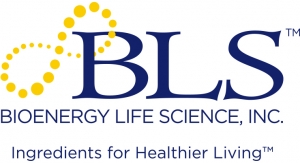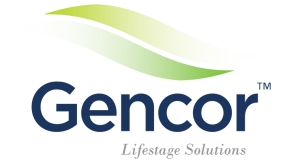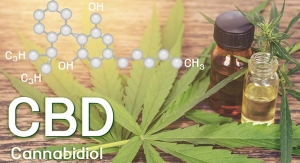05.21.19
Gencor has partnered with Dr. Daniele Piomelli, the director of the Center for the Study of Cannabis at the University of California, Irvine, and the editor-in-chief of the first peer-reviewed journal on cannabis and the cannabinoids, Cannabis and Cannabinoid Research, to help promote natural alternatives to CBD within the industry.
Distinguished Professor of Anatomy and Neurobiology and Louise Turner Arnold Chair in the Neurosciences, Dr. Piomelli is an expert in the study of cannabis, its health benefits and risks, and the endocannabinoid system.
“I am delighted to work alongside Gencor to study PEA as an alternative to CBD. While additional studies are needed, there is already a vast scientific literature on the efficacy, mechanism of action and safety of PEA as an anti-inflammatory and analgesic compound,” commented Piomelli.
Palmitoylethanolamide (PEA) is a naturally occurring fatty acid amide that is structurally related to the endocannabinoid transmitter, anandamide. Unlike anandamide, PEA does not bind to cannabinoid receptors and produces a variety of protective effects including reduced pain and inflammation.
“Although biogenetically and chemically different, CBD and PEA share a remarkable series of pharmacological similarities,” said Piomelli. “For example, PEA counteracts endotoxin-induced inflammation in cells in the same cell lineage as CBD. CBD and PEA also share a number of centrally mediated effects which include neuroprotection and attenuation of seizure activity.”
Numerous clinical studies have shown that PEA is an effective and safe anti-inflammatory, analgesic and tissue-protective nutrient. PEA has multiple applications in joint health, sports nutrition, sleep, recovery, and healthy aging.
“We are thrilled to partner with Dr. Piomelli to help promote products that go beyond CBD,” said Chase Shryoc, vice president of sales and business development at Gencor. “Our PEA product, Levagen, represents a major new natural therapeutic tool to help with anti-inflammatory analgesics.”
Distinguished Professor of Anatomy and Neurobiology and Louise Turner Arnold Chair in the Neurosciences, Dr. Piomelli is an expert in the study of cannabis, its health benefits and risks, and the endocannabinoid system.
“I am delighted to work alongside Gencor to study PEA as an alternative to CBD. While additional studies are needed, there is already a vast scientific literature on the efficacy, mechanism of action and safety of PEA as an anti-inflammatory and analgesic compound,” commented Piomelli.
Palmitoylethanolamide (PEA) is a naturally occurring fatty acid amide that is structurally related to the endocannabinoid transmitter, anandamide. Unlike anandamide, PEA does not bind to cannabinoid receptors and produces a variety of protective effects including reduced pain and inflammation.
“Although biogenetically and chemically different, CBD and PEA share a remarkable series of pharmacological similarities,” said Piomelli. “For example, PEA counteracts endotoxin-induced inflammation in cells in the same cell lineage as CBD. CBD and PEA also share a number of centrally mediated effects which include neuroprotection and attenuation of seizure activity.”
Numerous clinical studies have shown that PEA is an effective and safe anti-inflammatory, analgesic and tissue-protective nutrient. PEA has multiple applications in joint health, sports nutrition, sleep, recovery, and healthy aging.
“We are thrilled to partner with Dr. Piomelli to help promote products that go beyond CBD,” said Chase Shryoc, vice president of sales and business development at Gencor. “Our PEA product, Levagen, represents a major new natural therapeutic tool to help with anti-inflammatory analgesics.”


























